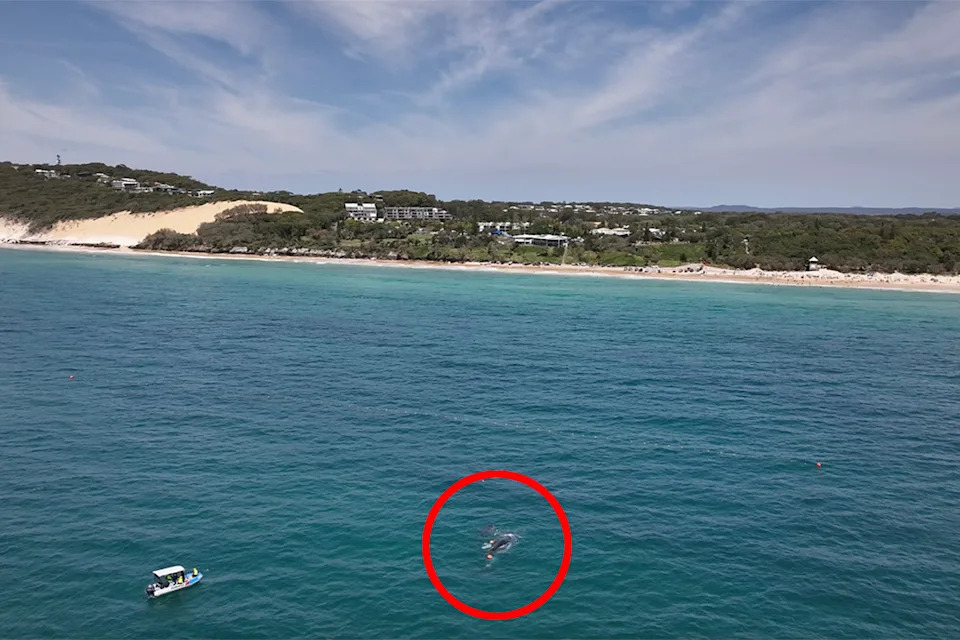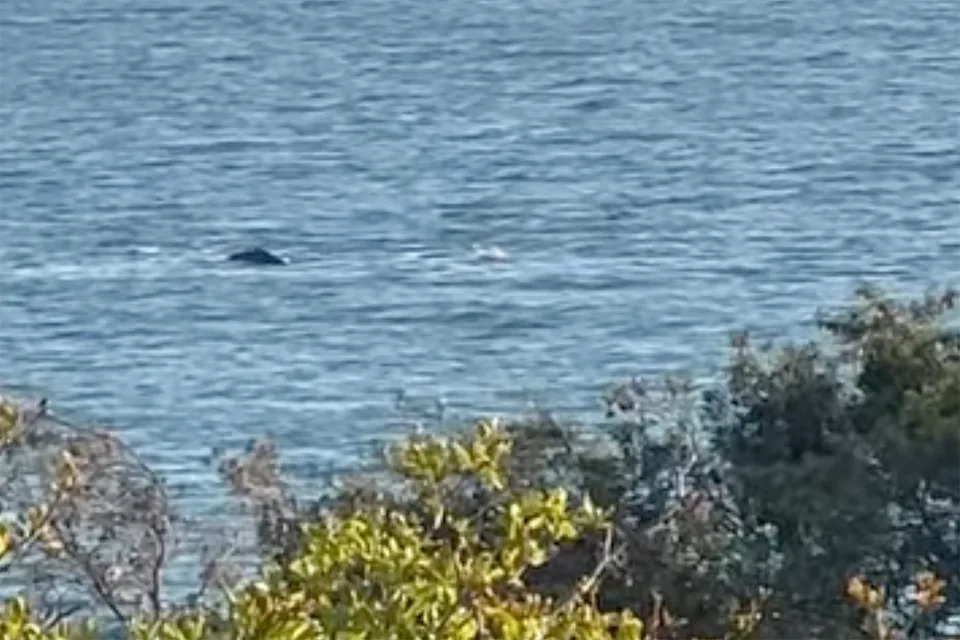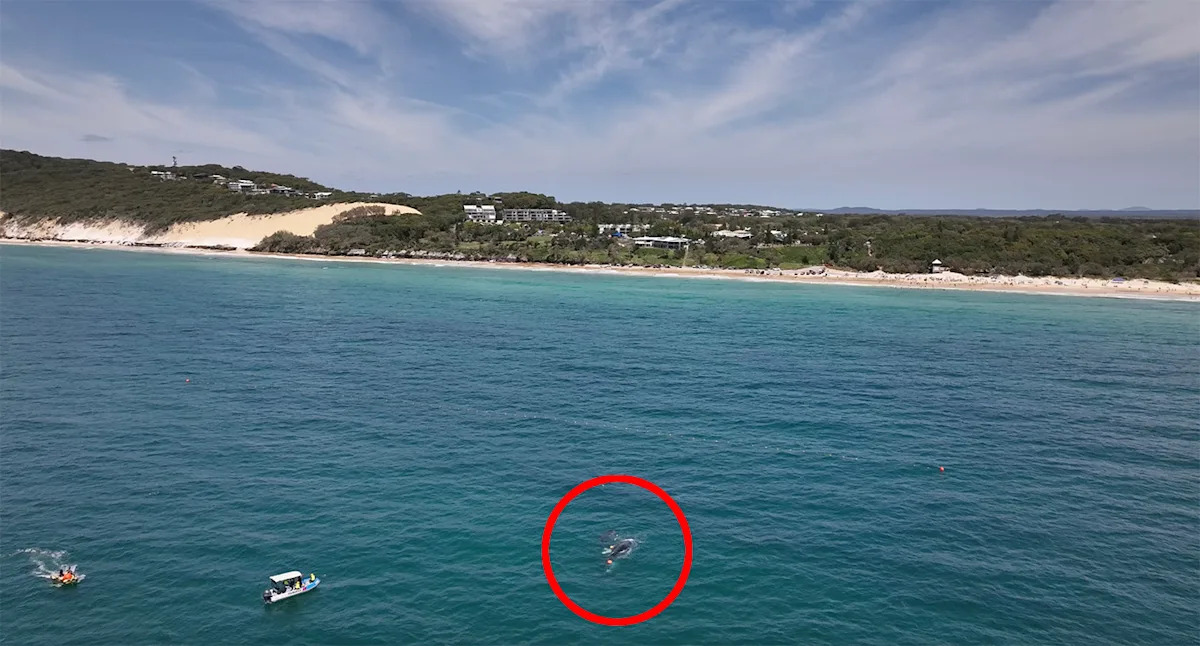A humpback whale and her calf have become the latest victims to become entangled in shark nets off south-east Queensland. The rescue is currently underway, and while the calf has been released, the mother remains trapped with her tail tightly entwined in the net.
The incident was first reported to authorities at 6am on Saturday, but it’s possible they had been entangled through the night. Rescuers fear the mother whale may not survive the ordeal, and there are also ongoing concerns for the calf who hasn’t been seen for several hours since being released.
The whales have become the ninth and tenth entanglements in just a matter of weeks, in addition to a dolphin killed in a net on Thursday.
Rescue crews took around four and a half hours to reach the pair on Saturday morning, with Andre Borell from the Envoy Foundation saying the delayed response could severely reduce the animals’ chance of survival.

The entanglement happened near the Rainbow Beach Surf Life Saving Club. Source: Envoy Foundation
“It doesn’t look great,” he told Yahoo. “The longer they’re entangled the more energy they burn, the less likelihood of survival.
“You’ve got to remember, they’ve got to make it all that way back to Antarctica before they feed. It’s a very long journey, energy is scarce and these long drawn-out entanglements are not good.”
Andre said the delay was because there is no Maritime Animal Response Team (MART) in the area and one had to travel up from the Sunshine Coast. He questioned why a shark net was installed in such a whale-dense region to begin with.
“That’s a bit crazy to me, that you put shark nets right near Hervey Bay, one of the global capitals of whale watching. And you don’t have a MART team stationed there, that’s an odd choice to me.”
Divers ‘trying to help’ contributed to the delay
Two divers reportedly trying to help free the whales only made matters worse, according to Department of Primary Industries Deputy Director-General Fisheries and Forestry Pauline Jacob.
“While our contractor was monitoring the situation and waiting for the MART team to arrive, interference from two SCUBA divers unfortunately made the entanglement worse,” Ms Jacob said.
“We remind the public that for their own safety, and the safety of all involved, it is dangerous to approach or try to release whales trapped in nets.
“Our teams are the trained experts, and we urge members of the public to please stay away from the nets.”
A DPI spokesperson said there is an exclusion zone that requires members of the public to keep a distance of at least 20m away from shark control equipment, and unauthorised people found within that zone could be fined.

The distressed whales can be seen from shore in front of the surf club. Source: Elizabeth McKenzie
‘Zero evidence’ that shark nets protect swimmers
While the season has not yet eclipsed record numbers of entanglements, the recent clustering of incidents – almost daily at the moment – is alarming.
The incidences have again sparked the debate about the controversial shark net programs used in Queensland and NSW.
“They are a false sense of security,” Andre said. “They keep politicians safe because it appears they are doing something. There is absolutely zero evidence that shark nets keep people safe.”
He argued that the nets actually do the opposite – attract sharks towards beaches because of the scent of decaying animals that get caught and die in the nets.
The DPI spokesperson said anyone who spots an entangled animal should call the Shark Control Program hotline on 1800 806 891 and “let the trained and properly equipped experts do their job”.
For more information on the Shark Control Program or Marine Animal Release Teams, visit fisheries.qld.gov.au.
Do you have a story tip? Email: newsroomau@yahoonews.com.
You can also follow us on Facebook, Instagram, TikTok, Twitter and YouTube.


